We will pass on the Earth and a sense of urgency to the next generation. Talking About Sustainability with Nomura Real Estate Group CEO (Part 2)
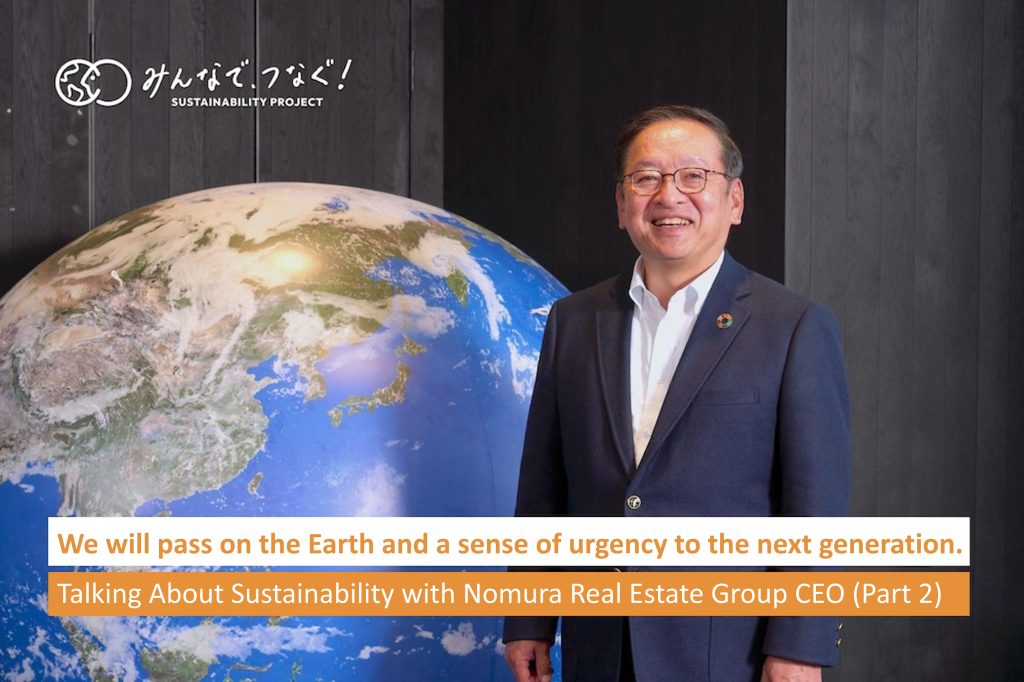
Living creatures of the Earth are also important stakeholders. In part one of this interview, Asuka Matsubara of the Sustainability Promotion Department asked Satoshi Arai, CEO of Nomura Real Estate Group, about his thoughts on the Group's Sustainability Policy and how it should play out. In the second part, we will discuss Mr. Arai's childhood episodes and consider the perspectives necessary to realize a sustainable society in the future.
-You mentioned that it is important to broaden our definition of stakeholders to include ones such as resources and the living creatures of the Earth. Do you have any specific tips on how we should be aware of this in our daily work and life?
I guess I would start by thinking about the happiness of those closest to me. It is quite difficult to put other people’s happiness ahead of my own, but I want to at least make my family and the people I work with happy. And if I can also make as many of the other people I come in contact with happy, then hopefully my existence will contribute to the happiness of society as a whole.
This is my own personal idea and others may think differently. Although I have come to realize that there is a limit to the number of people one person can make happy through their actions, if we act systematically as a company, we can not only make more people happy but also enrich the lives of many of our stakeholders.
In order to achieve this while working for a company, we must first ask ourselves what makes the people around us and our stakeholders happy. What are they looking for? I believe that it is important to stop and think about these questions and carefully address them. If many executives and employees are engaged in such activities in various places and if they continue to do so while expanding, I think the company as a whole will become more sustainable.
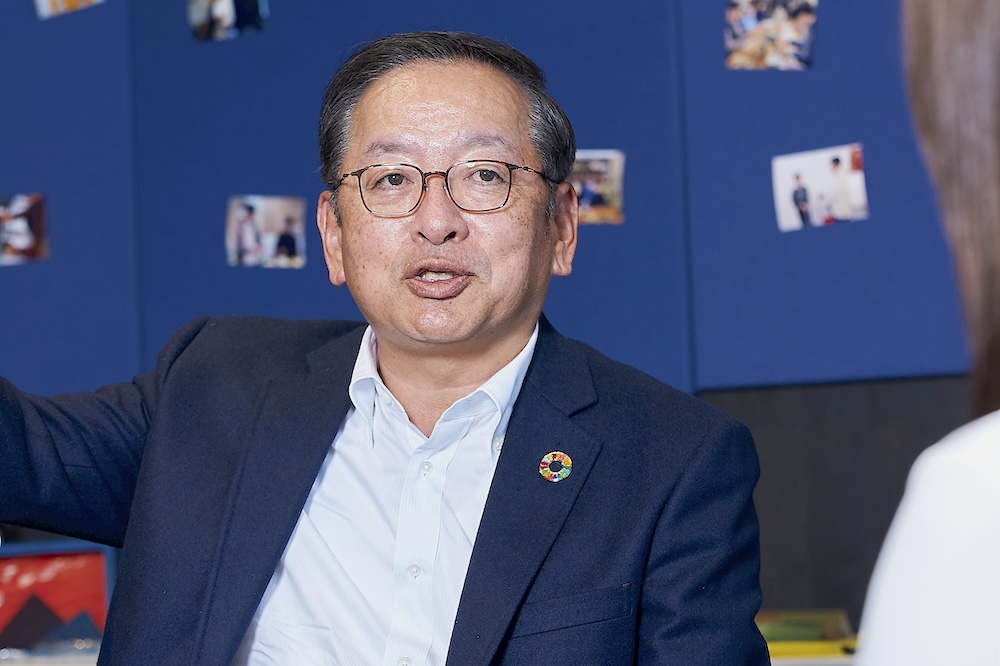
-I would also like to think about this from the perspective of loved ones who are close to me.
-Next, I would like to ask you a question as a global citizen. Are there any changes in the global environment that you feel around you? Also, is there anything you would like to leave behind for the children of future generations?
I will be 60 years old next year, and I would like to talk about the environmental changes I feel when I look back on my childhood. I lived in a place called Futago Shinchi in Kawasaki City until I was in the fourth grade (around 1975). At that time, there were many pear fields and wooded areas where we could see a variety of insects and birds. I also fished in the nearby river.
In those days, Futago Shinchi had many unpaved roads and some areas were not serviced by sewage systems, but in retrospect, I actually did not feel inconvenienced, and I was able to play in nature with neighborhood children, so in a sense, I feel that I had a rich life. Recently, I went to Futago Shinchi for the first time in a while, and I felt a little sad to see that all the pear fields and wooded areas had disappeared.
My childhood was a long time ago, and it may be difficult to create pear orchards and wooded areas in today's urban environment. But I hope to gradually restore the natural environment that is home to many insects and birds and pass it on to future generations.
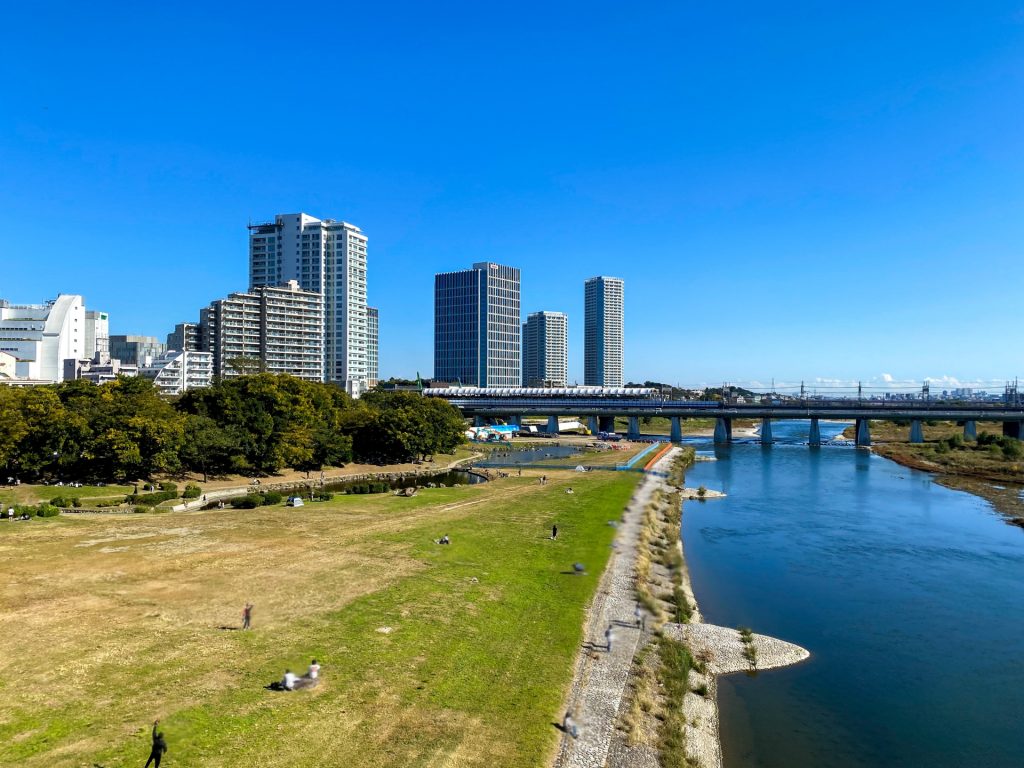
I also believe that our views on global environmental issues have changed since then. When I was in elementary school, there was the oil crisis, and at that time there was serious concern about the depletion of oil resources. However, recent surveys show that the number of years oil reserves is increasing, exceeding 50 years, so we may no longer have to worry about running out in the foreseeable future. On the other hand, we are facing a more serious problem with oil: the more we use it, the more it warms the planet.
And what has been bothering me lately is that the debate on climate change has focused so much on decarbonization and so little on broader environmental issues, including the impacts of climate change. Biodiversity has decreased by nearly 70% in the past 50 years, and people are saying things like there will be no more fish for food in the oceans by 2048. In fact, the Earth and the human beings living on it seem to be facing a variety of crises that are incomparably greater than those of 50 years ago. While addressing global warming is an urgent issue, I believe that we should also pass on to our future children an awareness of the many other crises and invoke in them a sense of urgency about these crises.
-It seems to me that passing on a sense of urgency about the future is one point to consider when thinking about sustainability. Please tell us about any personal experiences that help you to continue to deal with sustainability.
Some readers may be familiar with an experience I recently had that made me feel the power of life. About a year ago, I bought a banyan tree, coffee plant, and other plants in moss balls and placed them on the first floor of the Shinjuku Nomura Building, our headquarters. At first, I grew them as moss balls, but they seemed to get tired of being stuck in the moss balls and lost their vigor, so about six months ago I bought pots and soil and replanted them. They immediately became healthy and are still growing.
I always enjoy looking at those three pots when I come to the office, and I am amazed and healed by their growth. Since I moved them from moss balls to pots, they have grown well even indoors where they do not get much sunlight. I am impressed by the life force and resilience of the plants, and I feel a strange sense of emotion that I have never felt before.
Also, for the first time ever, I have come to feel a sense of calmness when I look at plants, and I believe that they can provide an environment where people can work in comfort.
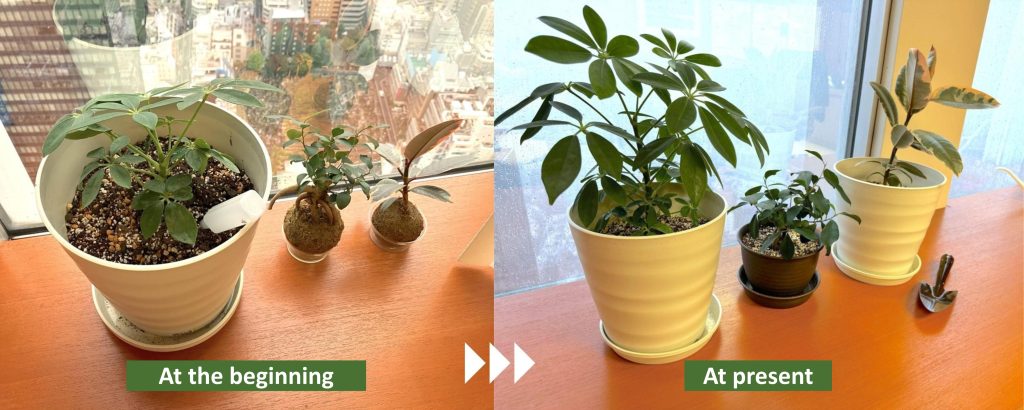
-This spring, the Nomura Real Estate Group launched a project called Minnade-TSUNAGU. What kind of project do you want to make it?
I would like to make this a fun project. Sustainability is not always relatable to many people because it is often associated with just words and numbers, and requires people to look into the distant future. In fact, however, opportunities to come into contact with sustainability are always around us, and working on sustainability is also a way to think about the happiness of stakeholders. This should be a fun thing to do, so I will enjoy working on it myself.
Looking back on my own actions, I cannot say that I have been fully committed to sustainability, but I would like to use this project as an opportunity to change my thinking and actions. As I have mentioned, I would like to work on sustainability from the perspective of how many people I can make happy. I would like to make many stakeholders happy through the activities of our group and I would like to have a positive impact on the Earth. To this end, I would like this project to be something that we can work on together with everyone “Minna”.
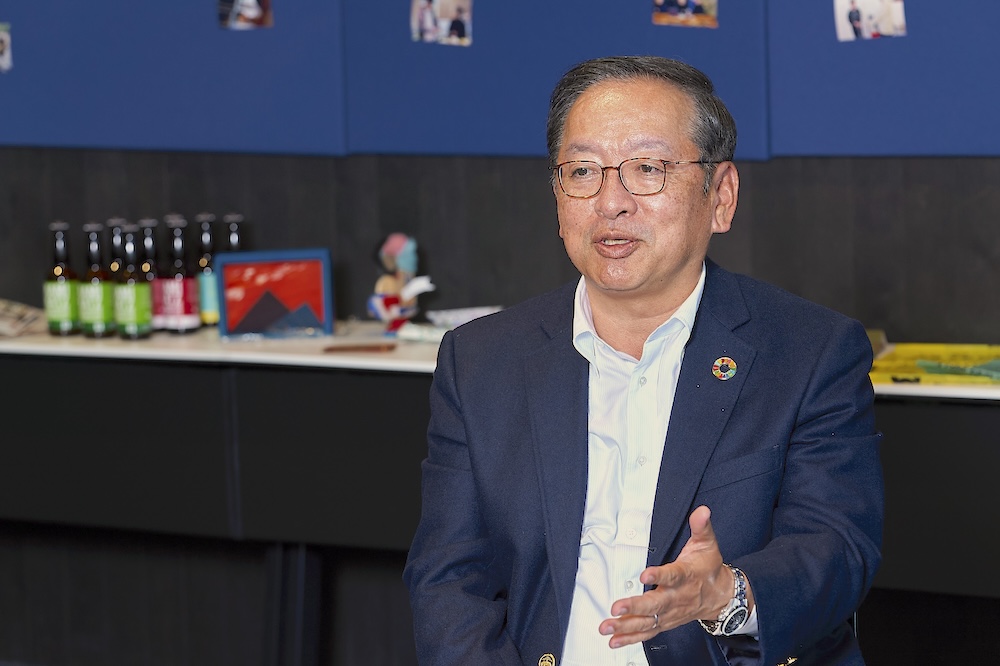
- Certainly, it will not last unless each one of us enjoys working on it. Finally, do you have a message for everyone in the Nomura Real Estate Group to realize our Earth Pride policy?
In the real estate development business in which our Group is engaged, we must be keenly aware that if we pursue only our own profitable growth, we may consume the Earth's resources and place a burden on the environment. We believe that we must have the resolve and responsibility to avoid this.
In addition, if we cannot enrich our employees and the society in which we live, we will lose the value of our existence as a company. We must have the resolve and responsibility to work toward enriching society as well as the employees who work with us.
With such resolve and responsibility, I believe that we can take on various challenges in the future in order to realize our Earth Pride policy. In addition to promoting sustainability throughout the Group, I would like to make a big impact by sincerely considering what contributions, even small ones, I can make, as an individual and as a group.
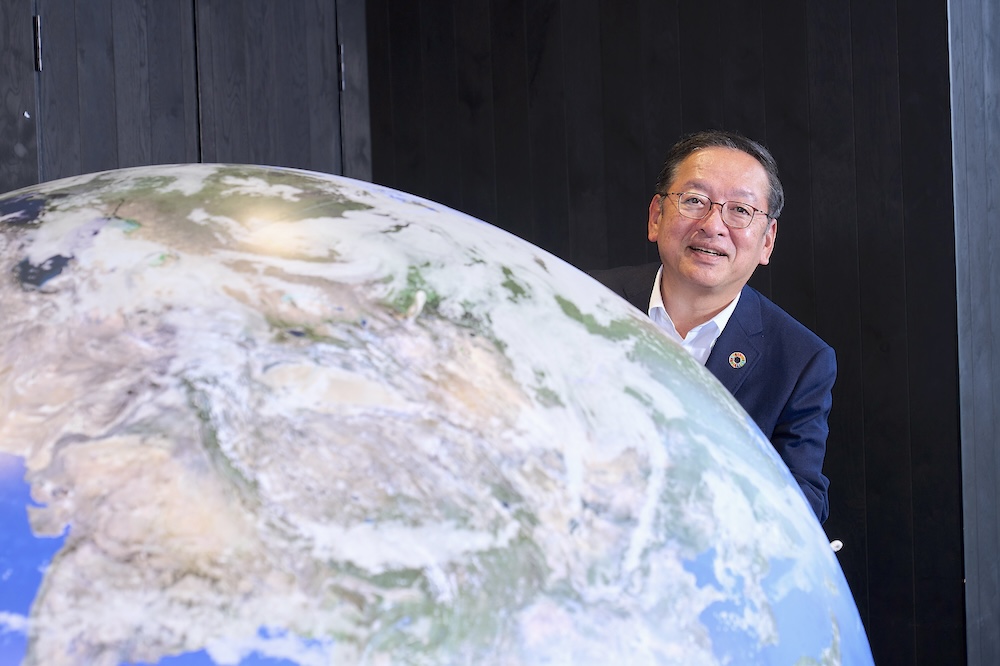
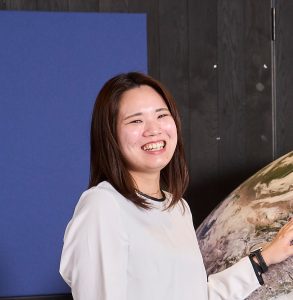
- Editorial postscript
- Asuka Matsubara, Mintsuna Editorial Department
I am Asuka Matsubara, the interviewer for this interview. Thank you for reading to the end.
What impressed me during the interview was the inclusion of “the Earth, all the resources that exist on it, and the many living creatures that live on it” among the stakeholders. I would like our company to be one that continues to be chosen not only by people but also by the Earth as a whole.
From now on, as we develop various projects under the Minnade-TSUNAGU project, I will do my best to help the members of the Nomura Real Estate Group enjoy taking action.
